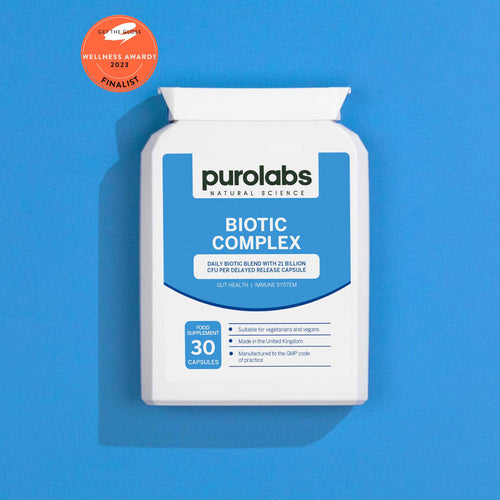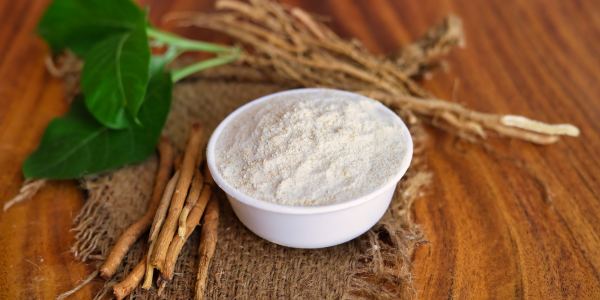“I am so confused about which supplements to take; so many new supplements are popping up on the market, I can’t decipher which ones are right for me.”
This is an all-too-common query I receive from clients, family, and friends. Supplements can be a fantastic addition to your health toolkit, but with so many claims out there and with clever marketing muddying the waters, knowing where to start can be overwhelming.
To help you navigate this part of your health journey, a great place to start is to clarify the jargon associated with supplements and what it all means.
What Do We Mean By Absorption?
I like to refer to absorption as the initial stage or process of nutrient utilization.
A phrase we like to use in the nutrition industry is that it is not just what we ingest, but what we absorb that determines health and protects us against disease.
Take a nutrient-dense meal, for example. Post-ingestion, the body needs to be able to extract those nutrients from our meal. The process of extraction can be referred to as absorption1.
What Is Bioavailability?
Bioavailability, therefore, can be seen as the next stage of nutrient utilization. The nutrient has been ingested and absorbed by the body, so what next?
This stage focuses on how the body moves said nutrient into the bloodstream, to be utilized by parts of the body that require it. How well the body can send nutrients to the various tissues and organs2 determines bioavailability.
Why Are They Important?
All stages of nutrient utilization are incredibly important. Absorption needs to happen in order for bioavailability to occur. How well the nutrient is absorbed determines how much of the nutrient in question is delivered to various parts of the body to carry out its roles in human health.
Absorption can be optimal; however, without optimal bioavailability, the nutrient cannot take its effect on the body. Therefore, both stages need to be considered and optimized when assessing nutrient intake.
Why Do They Matter When It Comes To Supplements?
Supplements, therefore, need to be manufactured in a way which helps to support the stages of nutrient utilization, to boost the efficacy and health benefits of their products.
This is also what can lead to confusion for many. A great example is claims made solely on the dosage of a nutrient within a supplement. If you are new to supplements, a high dose in and of itself may be a draw and a valid reason to purchase that product.
However, the question to ask yourself is just how much of that nutrient will your body absorb and utilize.
If the supplement contains genetically modified ingredients (GMOs) 3, artificial fillers, preservatives, colourings, etc., then absorption quickly drops, hindering how much of that nutrient can be used by the body.
Simple words to look out for when you are considering purchasing a supplement are key terms like absorption and bioavailability; however, looking at the quality of the product will also help determine these factors.
How much does said company focus on natural ingredients? Do they state that they avoid the use of artificial fillers, additives, and preservatives in their products?
These claims are important to notice, as poor-quality supplements can be irritating to the gut. The body recognizes and can utilize natural ingredients far better than supplements which contain chemicals that are incompatible with the human body.
Purolabs Supplements
It is also important to mention here that whilst Purolabs provides therapeutic clinical-backed doses in their supplements, stringent processes are carried out to ensure that their products are GMO-free and contain no fillers, additives, or artificial colourings.
Other Important Factors To Consider
Whilst the quality of a supplement significantly determines how well the body uses it to boost our health and well-being, it is also important to consider how well your body naturally absorbs and utilizes nutrients.
Individuals with health conditions that affect gut function, for example, may struggle with nutrient absorption regardless of the quality of the food or supplement being ingested4.
Digestion is one area of gut health which, when optimized, can dramatically improve how well our body absorbs nutrients. Here are a few key tips to consider helping improve digestion and boost the efficacy of your supplement routine:
- Reduce water intake with meals. The stomach needs to be acidic in order to effectively break down and utilize nutrients from our diet. Water is alkaline.
- Add bitter foods to your daily diet to improve bile flow, to help boost digestion. Rocket, artichoke, turmeric, watercress, and broccoli are great examples of foods you can incorporate.
- Consider supplementing with a good probiotic. A healthy gut, which is abundant in various strains of friendly bacteria, helps to improve digestion and significantly improve nutrient absorption.

Biotic Complex
It is also vital to look into lifestyle habits to help improve digestion. Are you in a state of fight or flight when eating your meals or taking supplements? Are you eating on the go, mentally having moved on to the next task of the day without taking a moment to sit down, breathe, and enjoy your meal?
If the body is in a state of stress when eating, absorption is impacted. Stress increases cortisol and adrenaline, both of which can speed up how quickly food moves through your digestive tract, leaving little time for nutrient absorption. The body enters survival mode, with digestion dropping to the bottom of the list of priorities5.
As we have come to learn, the majority of our immune system lives in our gut. Stress affects gut immunity. Good bacteria in the gut help to fight viruses, improve digestion, and reduce inflammation. Eating whilst stressed impacts how much good gut bacteria we can populate through the foods we eat6.
Here are a few daily tips to incorporate to help reduce stress and improve digestion:
- Take time to sit still with each meal and chew mindfully. Ideally, eat your meal in nature, whether that’s in your local park or in your garden, as studies show that eating in a beautiful environment helps to reduce cortisol7.
- Incorporate a daily meditation, yoga, stretch, or somatic vagus nerve stimulating exercise. Daily exercises can be as little as five minutes if you are running short on time in the mornings8.
- Connecting with loved ones on a regular basis has been scientifically shown to help improve mental resilience. Activities can include a phone call, connecting with your local community, and exploring nature with loved ones.
- Take some time out for self-love. Whether that’s having a bath, going on a long walk, or reading a book in silence, whatever helps you to switch off for the day and find your calm is a great way to reduce stress.
Whilst the quality of the supplements we ingest is vital for us to optimally absorb and utilize them, we also need to improve the efficacy of the supplements we use by supporting our body’s ability to function and thrive.





















